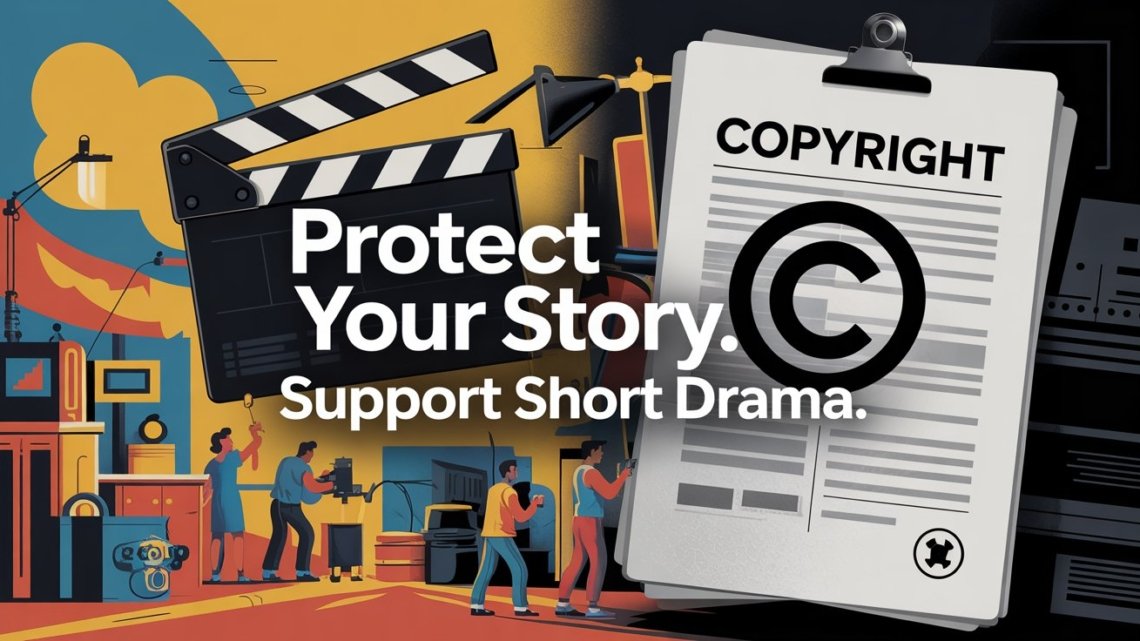The short drama industry, known for its bite-sized, engaging content tailored for platforms like YouTube, is grappling with a growing problem: illegal uploads by YouTubers. These unauthorized uploads are causing significant copyright issues, threatening the livelihoods of creators and the sustainability of the industry.
The Rise of Short Dramas
Short dramas, typically 1-10 minute episodes designed for quick consumption, have exploded in popularity due to their accessibility and ability to hook viewers with fast-paced storytelling. Platforms like YouTube have become a hub for these dramas, attracting millions of viewers and generating revenue for creators through ads, sponsorships, and subscriptions.
The Problem: Illegal Uploads
Despite their success, short drama creators face rampant copyright infringement. Unscrupulous YouTubers illegally upload full episodes or entire series without permission, often reaping ad revenue that rightfully belongs to the original creators. These uploads:
- Undermine Revenue: Creators lose out on monetization opportunities when pirated content competes with their official channels.
- Damage Brand Control: Illegal uploads often lack proper attribution, leading to confusion among viewers and diluting the creator’s brand.
- Reduce Incentive to Create: The financial and emotional toll of fighting piracy discourages creators from producing new content.
Why Is This Happening?
Several factors contribute to the issue:
- Ease of Uploading: YouTube’s open platform allows anyone to upload content, making it easy for bad actors to share pirated material.
- Weak Enforcement: While YouTube has a Content ID system to detect copyrighted material, it’s not foolproof. Many infringers exploit gaps by altering videos slightly to evade detection.
- High Demand: The popularity of short dramas fuels a black market where viewers seek free access to premium content, encouraging illegal uploads.
The Impact on the Industry
The short drama industry relies heavily on intellectual property (IP) rights to protect its creative output. Illegal uploads erode trust in the ecosystem, discourage investment in high-quality productions, and threaten the industry’s growth. Small-scale creators, who often lack the resources to pursue legal action, are hit the hardest.
YouTube’s Response and Challenges
YouTube has mechanisms like copyright strikes and takedown requests to address infringement, but these are often slow and reactive. Creators must proactively monitor the platform for violations, a time-consuming process that diverts energy from content creation. Moreover, repeat offenders can create new accounts, perpetuating the cycle of infringement.
What Can Be Done?
To combat this issue, several steps could be taken:
- Stronger Detection Tools: YouTube could enhance its Content ID system to better identify altered or re-uploaded short dramas.
- Faster Takedown Processes: Streamlining the copyright claim process would help creators remove illegal content more quickly.
- Creator Education: Platforms and industry groups could educate creators on protecting their IP, including watermarking videos and registering copyrights.
- Viewer Awareness: Campaigns to discourage viewers from watching pirated content could reduce demand for illegal uploads.
- Legal Action: In severe cases, creators may need to pursue legal remedies, though this can be costly and impractical for smaller producers.
Conclusion
The short drama industry’s copyright woes highlight the challenges of protecting creative work in the digital age. While YouTube remains a vital platform for short drama creators, illegal uploads pose a serious threat to their success. By strengthening enforcement, educating stakeholders, and fostering a culture of respect for IP, the industry can better safeguard its future and continue delivering compelling content to global audiences.
If you’re a creator facing copyright issues, consider reaching out to YouTube’s support team or consulting a legal professional for guidance.


Add a Comment